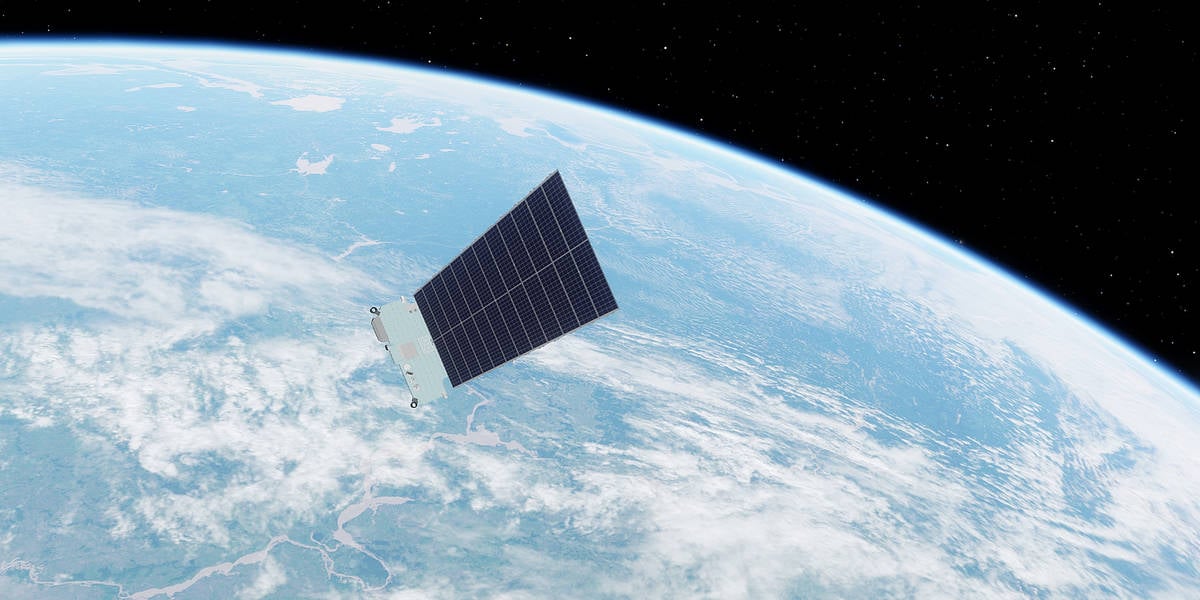Starlink Speeds Ahead In The Satellite Race But Rivals Aren't Starstruck Just Yet

SpaceX's Starlink satellite broadband service has become the provider to beat on speed, according to network intelligence outfit Ookla, although the company faces competition coming soon from a rash of rivals.
In speed tests conducted by Ookla during the second quarter of 2023, Starlink turned out to be the fastest among the satellite providers it surveyed, delivering median download speeds of over 100Mbps in 14 European countries.
Looking more broadly across the 27 European countries surveyed, Starlink managed greater than 90Mbps in 20 of those, higher than 80Mbps in 24 countries, with only three countries failing to see speeds of at least 70Mbps.
The picture hasn't always been so rosy, with the Musk-owned platform experiencing difficulties over the past year or so as new customers flocked to sign up, leading to a decline in download speeds as Starlink struggled to manage the increased burden.
Ookla found that median download speeds for Starlink are now stabilizing, and were about the same or better during Q2 2023 than the corresponding period last year across 15 countries, while speeds have taken a slight hit (decreasing more than 5 percent) in eight countries. That said, among the 27 countries surveyed during Q2 2023, Starlink proved faster than the aggregate score for of all fixed broadband providers combined in many countries.
In the UK, for example, Starlink's service has been consistently faster than all other providers in download speeds in the period from Q2 2022 to Q2 2023, topping 100Mbps, while the aggregate of rival broadband providers combined has only recently crept above 75Mbps, according to Ookla's charts.
But when it comes to upload speeds, Starlink has mostly shown a decrease compared with a year ago, Ookla found. Across all 27 countries surveyed, upload was between 10Mbps and 15Mbps except in Poland, which came in lower at 9.11 Mbps, while Portugal, Hungary, Croatia, Bulgaria, Romania, and Spain all experienced upload speeds slightly above 15Mbps.
Elsewhere, Ookla reported that Starlink median download speeds in New Zealand hit 113.78Mbps, up from 105.99Mbps a year ago, while in Australia it was 104.92Mbps, just slightly up from the 102.76Mbps a year ago. In remote Tonga, however, media download speeds dropped from 45.25Mbps a year ago to 37.95Mbps.
In Africa, where Starlink only started providing a service this year, Nigerian subscribers enjoyed faster median download speeds during Q2 2023 than that offered by fixed broadband providers at 63.69Mbps compared to 15.60Mbps, Ookla claimed.
This Ookla report didn't have much to say about America, other than to point out that US customers were more likely to be positive about Starlink compared with their fixed broadband providers, which it put down to the country having large rural or remote regions that are underserved by traditional broadband.
- Bombshell biography: Fearing nuclear war, Musk blocked Starlink to stymie Ukraine attack on Russia
- Starlink satellites leak astronomy-disturbing EM radiation, say boffins
- Intelsat and SES merger to create $10B satellite giant is off
- Starlink's rocket speeds hit a 50 megabit wall for large downloads
Meanwhile, Ookla said Starlink may have more competition in future as Amazon prepares to launch its first Project Kuiper satellites, rivals OneWeb and Eutelsat merge and combine their respective fleets of low Earth orbit and geosynchronous orbit satellites, and HughesNet is in the process of deploying its Jupiter 3 array.
Viasat is also deploying the ViaSat-3 family of high-speed broadband satellites, but a technical hitch with the first one has caused delays to the project that might "send ripples through the satellite industry," according to Ookla, and cause insurance premiums to skyrocket for all operators.
Then there is the EU, which is investing €2.4 billion ($2.6 billion) on the IRIS² program to build a satellite constellation for "communications sovereignty" and to provide high-speed broadband connectivity for poorly connected areas.
Starlink itself continues to expand, Ookla notes. Although it now has over 5,000 satellites in orbit, the company faces "an incredibly busy" rest of 2023 and 2024 to expand its footprint further into Africa, Asia, and South America. ®
From Chip War To Cloud War: The Next Frontier In Global Tech Competition
The global chip war, characterized by intense competition among nations and corporations for supremacy in semiconductor ... Read more
The High Stakes Of Tech Regulation: Security Risks And Market Dynamics
The influence of tech giants in the global economy continues to grow, raising crucial questions about how to balance sec... Read more
The Tyranny Of Instagram Interiors: Why It's Time To Break Free From Algorithm-Driven Aesthetics
Instagram has become a dominant force in shaping interior design trends, offering a seemingly endless stream of inspirat... Read more
The Data Crunch In AI: Strategies For Sustainability
Exploring solutions to the imminent exhaustion of internet data for AI training.As the artificial intelligence (AI) indu... Read more
Google Abandons Four-Year Effort To Remove Cookies From Chrome Browser
After four years of dedicated effort, Google has decided to abandon its plan to remove third-party cookies from its Chro... Read more
LinkedIn Embraces AI And Gamification To Drive User Engagement And Revenue
In an effort to tackle slowing revenue growth and enhance user engagement, LinkedIn is turning to artificial intelligenc... Read more

